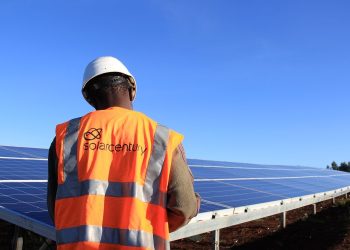
Namibia’s Minister of Mines and Energy Tom Alweendo says competitive policies relating to taxes and royalties are key to attracting investments in sectors such as energy.
This comes as Namibia is attracting oil and gas investments, citing major players such as Shell and TotalEnergies, which continue to make significant discoveries in the country.
“To attract and maximise this investment without compromising our own needs and priorities, we must offer competitive policies that relate to taxes and royalties that reflect the high industry costs. In addition, we must ensure stability in the form of transparency, strong economies, and efficient legal systems that are crucial in acquiring investments,” he said.
He highlighted job creation, building roads, infrastructure and overall upliftment of the livelihoods of the people as some of the potential benefits that Namibia is earmarked to attain due to ongoing investments in the oil and gas sectors.
Namibia made a breakthrough in 2022 when oil was discovered and, at the same time rolled out the ambitious green hydrogen programme likely to make the country a global player in renewable energy generation.
Alweendo, therefore, pointed out that natural gas is a key path to Africa’s prosperity, brushing off notions by the developed world of asking African nations to disregard natural gas and fossil fuel in the work of renewable energy development that aims at decarbonisation.
“Asking African nations to disregard natural gas is suggesting that we should accept half the power capacity, half the standard of living and half the safety compared to the Western countries.”
“No nation has industrialised without reliable energy, and natural gas provides that while we build our renewables. Hence, as Africans, we should drive our energy transition initiatives by using what we have now to achieve our future,” stated Alweendo.
In addition, he said such calls against fossil fuel development in Africa which disregards the immediate realities facing African nations in as much as it is a noble goal to end reliance on fossil fuels, as declared at the climate change 28thConference of Parties in Dubai.
He also added that transitioning exclusively to renewable overnight lacks a viable execution in the context of Namibia and Africa at large, because of under-funding towards developing clean energy projects.
“Africa’s sustainable energy goals require over U$200 billion annually, yet current investments sit at a mere U$25 billion. This shortfall is coupled with Africa’s rapidly growing population, which demands immediate action to ensure energy security,” he said.
Currently, Alweendo said Africa only contributes 1% of global solar power generation, despite vast potential due to funding shortfalls.
“The underinvestment in African renewable [energy] is just one aspect of the larger problem. Therefore, natural gas,” he said. He said a balanced plan is crucial to address both climate concerns and the continent’s urgent energy needs.







